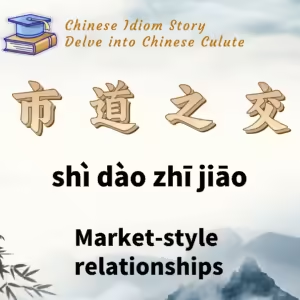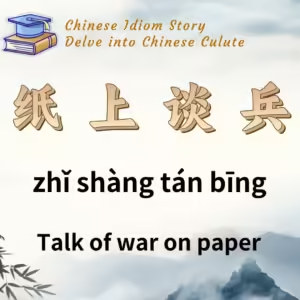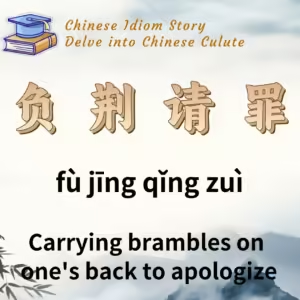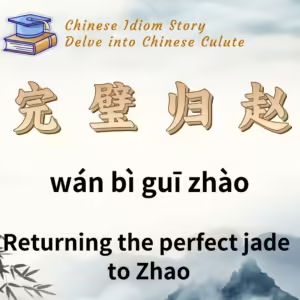
Chinese Idiom: 市道之交 (Shi Dao Zhi Jiao)
English Translation: Market-style relationships
pīn yīn: shì dào zhī jiāo
Idiom Meaning: This idiom refers to relationships that are overly driven by self-interest, much like the transactional nature of market dealings. It describes interactions where people associate with others primarily for personal gain.
Historical Source: Records of the Grand Historian (《史记 · 廉颇蔺相如列传》)
Idiom Story:
The story originates from the Records of the Grand Historian, which recounts the life of Lian Po, a famous general of the Zhao state during the Warring States period. After being appointed as the supreme general by King Huiwen of Zhao, Lian Po received numerous visitors, including nobles, officials, and scholars, all eager to flatter and curry favor with him. His residence was constantly bustling with visitors from morning till night, and even into the late hours.
However, when the long and grueling war between the Qin and Zhao states broke out, Lian Po, now under the command of King Xiaocheng of Zhao, was sent to the front lines at Changping with 200,000 soldiers to confront the Qin army. Adopting a strategy of “fortifying defenses and prolonging the war,” Lian Po managed to weaken the Qin forces. Unfortunately, King Xiaocheng fell victim to Qin’s scheme of sowing discord, and replaced Lian Po with Zhao Kuo, resulting in Lian Po’s dismissal.
Upon his return to Handan, Lian Po found that the once steady stream of visitors had completely dried up. Those who once flocked to his residence now avoided him. The doors of his home remained closed day and night, with no one coming to visit.
The situation grew worse when Zhao Kuo, known for his reliance on “paper strategies,” led the Zhao army to a disastrous defeat at Changping, where over 400,000 Zhao soldiers were massacred by the Qin army. In the aftermath, the prime minister of the Yan state, Li Fu, convinced the Yan king to take advantage of Zhao’s weakened state by launching an attack. King Xiaocheng of Zhao had no choice but to reinstate Lian Po, who successfully defeated the Yan forces, killed Li Fu, and even besieged the Yan capital. In response, the Yan state offered five cities to Zhao in exchange for peace, and Lian Po’s reputation soared once more.
As Lian Po’s status rose again, those who had abandoned him earlier began to return, seeking to curry favor once more. Disgusted by their opportunistic behavior, Lian Po ordered them to leave, saying, “You may go!”
One of the visitors stepped forward and said, “General Lian, when you were in power, we followed you; when you lost power, we left. It is only natural that people associate based on benefits and consequences. Why should you be angry?”
Upon hearing this, Lian Po sighed deeply, choosing not to respond.
This idiom captures the nature of relationships driven by self-interest, where people associate with others only when it benefits them, much like how merchants conduct business in a marketplace.






